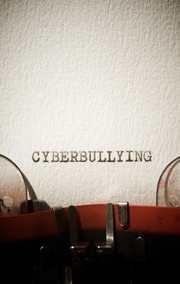Cyberbullying Red Flags: Signs Parents Should Never Ignore
If you’re a parent, you know that the digital-focused world we live in brings a whole new set of challenges. Gone are the days when ensuring a child’s well-being was largely about physical safety and education. Today, we have to deal not just with regular bullying but cyberbullying, as well.
Cyberbullying, a distressing by-product of our online-centric lives, has emerged as a significant threat to young minds. Unlike traditional bullying, it doesn’t end at the school gates and can pervade every aspect of a child’s life, with the potential to be relentless, invasive, and deeply traumatic.
As parents, understanding this phenomenon, its impact, and how it manifests is crucial. Recognizing the red flags of cyberbullying is not just prudent; it’s a necessary step in safeguarding our children’s mental and emotional well-being in this digital age.
What Is Cyberbullying?
Cyberbullying, a term that has become increasingly relevant in our digital age, refers to the use of electronic communication to intimidate, threaten, or harass an individual.
This modern form of bullying transcends the traditional playground boundaries, occurring through social media, text messages, and other digital platforms. It can manifest in various forms: spreading malicious rumors online, sharing private or embarrassing information without consent, and sending threatening messages.
What is particularly alarming is the rapid integration of technology in education, which, while offering numerous benefits, also opens doors to new forms of harassment. A striking statistic from the world of educational technology (EdTech) underscores this shift.
EdTech usage in K-12 schools has risen by 99% since 2020, signifying a shift towards digital education. This surge in digital learning tools not only changes the educational landscape but also highlights the need for resources that educate about digital safety, including the prevention of scams and fraud, which can be forms of implicit bullying.
They’re suddenly exposed to the entire world wide web, and not a friendly environment where they know their teacher and the other 20 or so children they share the classroom with.
Red Flags Indicating Your Child Might Be Bullied Online
Detecting cyberbullying can be challenging, as it often occurs out of physical view. However, since the hidden nature of this form of abuse can be very brutal to the victim, parents can often notice:
- Academic indicators: A decline in academic performance or an apparent aversion to attending school can be red flags. This might manifest as excuses to avoid school or a lack of interest in homework and assignments.
- Altered eating and sleeping patterns: Noticeable changes in eating habits, such as skipping meals or binge eating, can be indicative of stress or anxiety stemming from cyberbullying. Similarly, disrupted sleep patterns, insomnia, or frequent nightmares are common in children facing online harassment.
- Emotional distress: Perhaps the most telling signs are emotional. Withdrawal from family and friends, a sudden loss of self-esteem, signs of fear or helplessness, and an unwillingness to discuss online activities can all point to a child struggling with cyberbullying.
The Other Side of the Coin: Signs Your Child Might Be a Cyberbully
While much attention is rightly given to identifying victims of cyberbullying, it’s equally important to recognize when a child might be the perpetrator. All it takes is hanging out with the wrong crew on a Discord server, and your child might :
- Aggressive behavior and frequent conflicts: If your child exhibits increasingly aggressive behavior, both online and offline, or seems to be involved in frequent verbal or physical conflicts, it could be a sign of cyberbullying behavior.
- Signs of increased secrecy and possession of unexplained items: A sudden increase in privacy, particularly regarding their digital life, or having new items or money that they can’t or won’t explain, can indicate involvement in negative online activities.
- Shifts in social dynamics: Pay attention to changes in your child’s friend groups and their attitudes toward others. A child who bullies others might display a lack of empathy, be overly concerned with popularity, or have friends who also engage in bullying.
Barriers to Communication: Why Children Stay Silent
Understanding why children often remain silent about bullying experiences is crucial for effective intervention. Here are some common reasons:
Fear and Humiliation
Children may fear retaliation from the bully or feel humiliated about being targeted. They might believe that talking about it will only make the situation worse. And who can blame them, honestly? Especially given the fact many counselors take the zero-tolerance route and effectively prevent bullying victims from defending themselves.
Social Isolation
A child who is bullied might already feel socially isolated and believe that no one cares or could understand their situation. That is, ultimately, one of the bully’s goals—to make the victim feel hopeless, rendering them unwilling to put up a fight. So if you feel your kid is spending less time with his close friends, it might be a sign something is happening.
Concerns About Adult Intervention
Children may worry that involving adults will not help or could lead to more severe consequences from the bully. They might also fear being judged or misunderstood by adults. Once again, they’re not completely wrong in this line of thinking. No matter what, do not victimize, patronize, or suggest that they’re weak. Instead, provide support and security from the get-go.
Proactive Parenting: Initiating Conversations and Building Trust
As parents, it’s essential to create an environment where open communication about online safety is the norm. It’s far, far too late to try to diagnose the situation once your child is already being bullied. Instead, you ought to:
- Start early and be consistent: Engage in conversations about digital behavior, online safety, and empathy from an early age, and maintain these dialogues consistently as your child grows. Explain what bullying is and slowly introduce the child to ‘reality.’
- Create a safe space for communication: Ensure your child feels safe and comfortable talking to you. Avoid reactions that might make them feel judged or scared to share their experiences. If you had something similar happen to you, share it!
- Educate yourself and your child: Stay informed about the latest trends in social media and online gaming. The best way to talk about these things is informally, not through “Hey, sit down, we have an important subject to discuss” and similar methods.
- Listen more than you speak: When your child talks about their online experiences, listen more than you advise. Understanding their perspective is key to providing the right support.
- Model positive online behavior: Lead by example. Show respect and kindness in your own online interactions and discuss why this is important.
Reaching Through the Screen: When Cyberbullying Becomes Real
Oftentimes, cyberbullying is just one step of the wider cycle of abuse. Once the bully establishes control online and realizes they can make the feel victim uncomfortable, no matter how protected they actually are, they want more. This yearning for control inevitably leads to the cyberbullying spilling out into the real world.
It can start from Instagram or TikTok DMs and lead to your child being followed home from school. That’s why a good way to get to the bottom of such situations is to make use of your residential surveillance system and see if your child behaves strangely or has frequent unwanted visitors.
In addition, you should preemptively establish contacts with:
- Teachers
- The principal
- Your child’s friends’ parents
- Coaches and any other community figures
Sometimes, you can’t be clairvoyant and predict your child will be victimized, which is why communicating effectively with educators and other figures will help you find out, even if the child is unwilling to talk at first.
Empowering Parents in the Digital Age
As parents, staying informed, proactive, and engaged in your child’s digital life is key. By being aware of the potential risks and knowing how to address them, you can help ensure the safety and well-being of your children in this interconnected world. But most importantly, you should set a proper example and avoid aggressive behavior online yourself.
About the Author:
Ryan Harris is a copywriter focused on eLearning and the digital transitions going on in the education realm. Before turning to writing full time, Ryan worked for five years as a teacher in Tulsa and then spent six years overseeing product development at many successful Edtech companies, including 2U, EPAM, and NovoEd.










